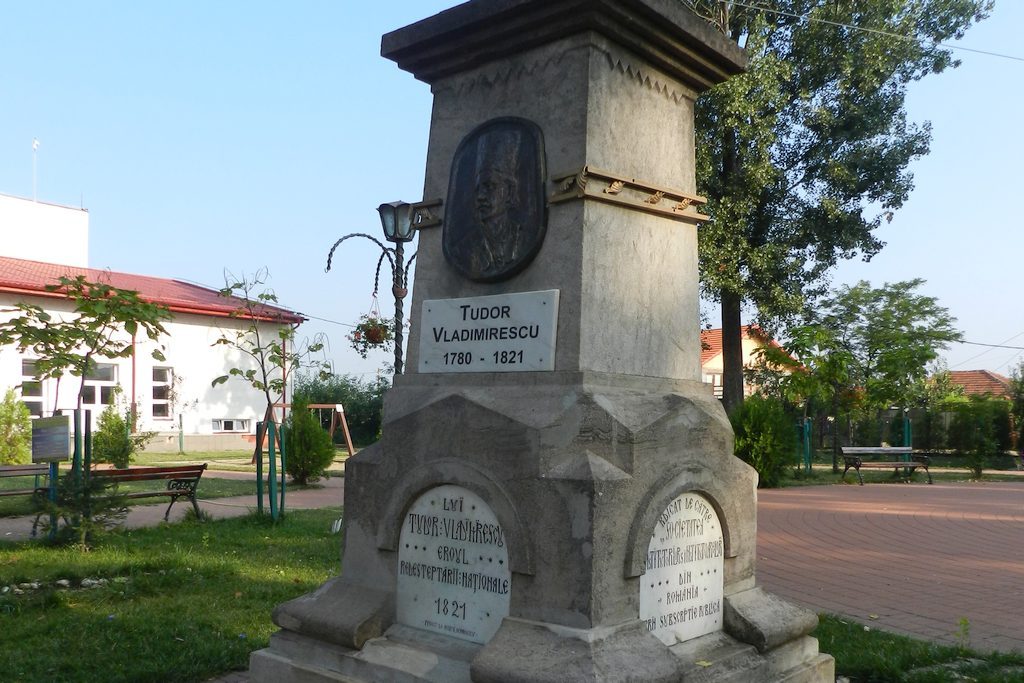

The bust of Tudor Vladimirescu, in the center of the town of Cerneți was built in 1914 and restored in May of 2014. The leader of the revolutionary movement from 1821, Tudor Vladimirescu, was born around 1780 in Vladimiri village (Gorj County), from a freeholder family. At 18 Tudor joined the pandours (irregular army force, destined to harass its enemy) according to the tradition of the county he was born in. The pandours were a favoured category among the peasantry in Oltenia and enjoyed tax esemption and other privileges. In 1806 he waas named field sheriff in Cloşani, which is an administrator of a mountain district, which made him popular in the wide circles in Oltenia. With some interruption, Tudor will keep being sheriff until the end of 1820, when he will be called to Bucharest for his great revolutionary mission.
In 1807, he lead the group of volunteers who would be fighting until the end of the war in general Isaiev detachment. For his bravery and military talent, Tudor is named „comandir” and get to command most of the pandour corps. For his actions he was promoted to lieutenenant, decorated with the St. Vladimir order with swords, engraved with the czar’s initials. These distinctions ensured protection from the Russian consul and the quality of russian protege. This quality and the provvisions of the Bucharest treaty (1812) protected him for the Turkish people’s revenge. In 1814, in order to liquidate the inheritance of N. Glogoveanu’s wife, deceased in Viena and to bring her daughter into the country, he took a trip to Vienna, during the peace congress (June 14th to December 26th 1814). Speaking German and Greek, Tudor was able to track the political isues debated in the press.
Coming back to the country at the beginning of 1815, Tudor finds that the Turkish garrison from Ada-Kale had invaded Oltenia. They had also destroyed his house in Cerneţi
Against the robberies, Tudor adressed the law. The subprefect of Mehedinţi county, Nicolae Glogoveanu, for whom Tudor had done so many favors, one time invaded his estate to knock down his mill. People who didn’t know what it meant for a freeholder to have his property tresspassed called him „a fight loving yeoman”. His experience in this matter affected him the most and strenghtened him. The daily contact with a corrupt administration and a corruptible justice further feeds his violent and susceptible temperament and gives his expressions a bitterness and outrage feel. In 1821, talking to Ilarion about the landowners that had engaged in a fight against the Turkish domination and then ran to Braşov, he cried out: „I will cut their hands off, all of the Turkish landowners; I will then fill them with hay and send them as a gift from this country to the emperor courts, where they will be placed in a museum for sure; for that is where they belong, close to the savage animals”.
